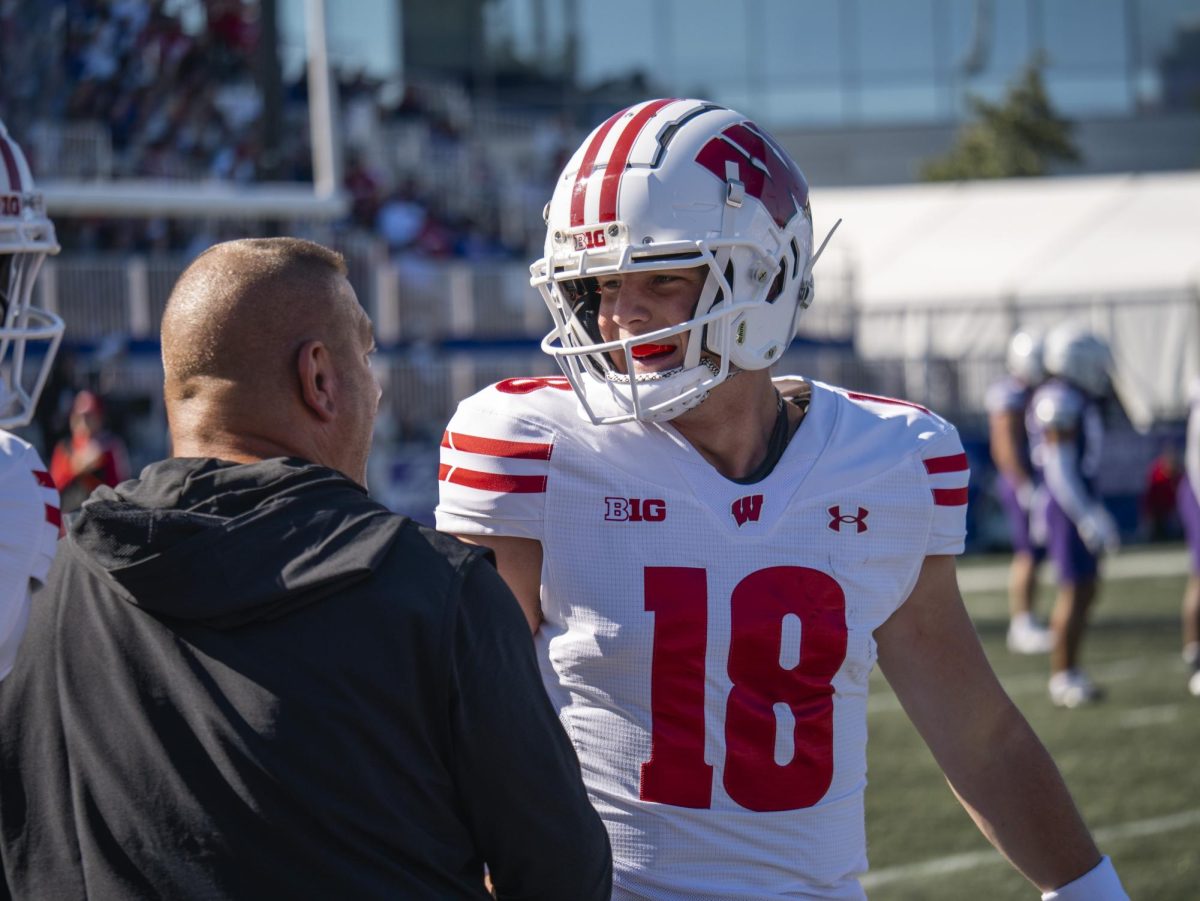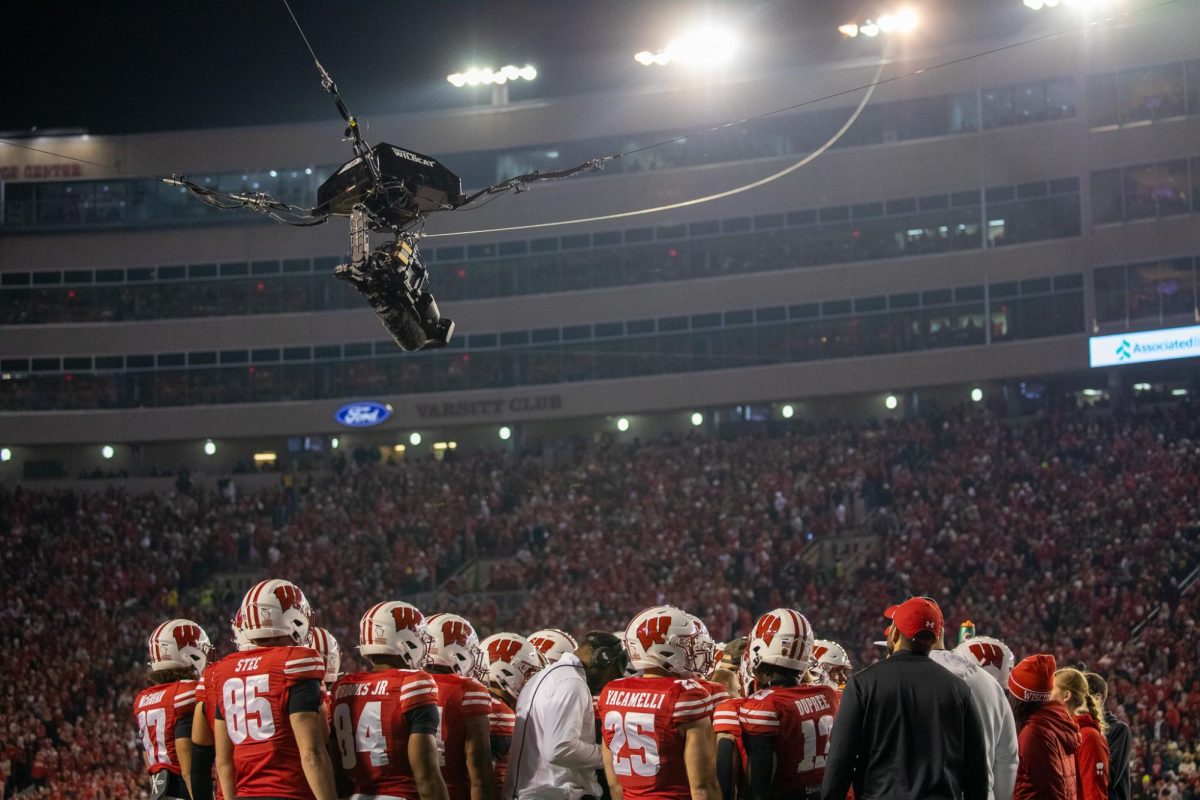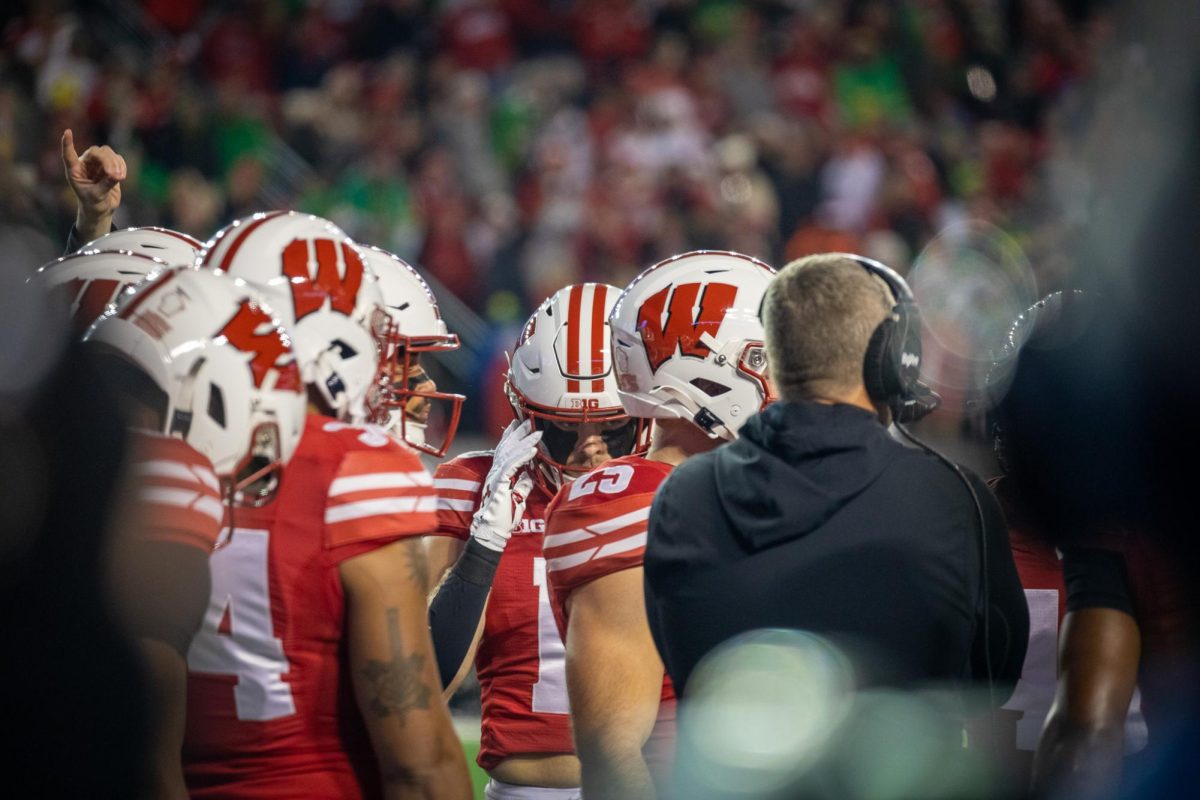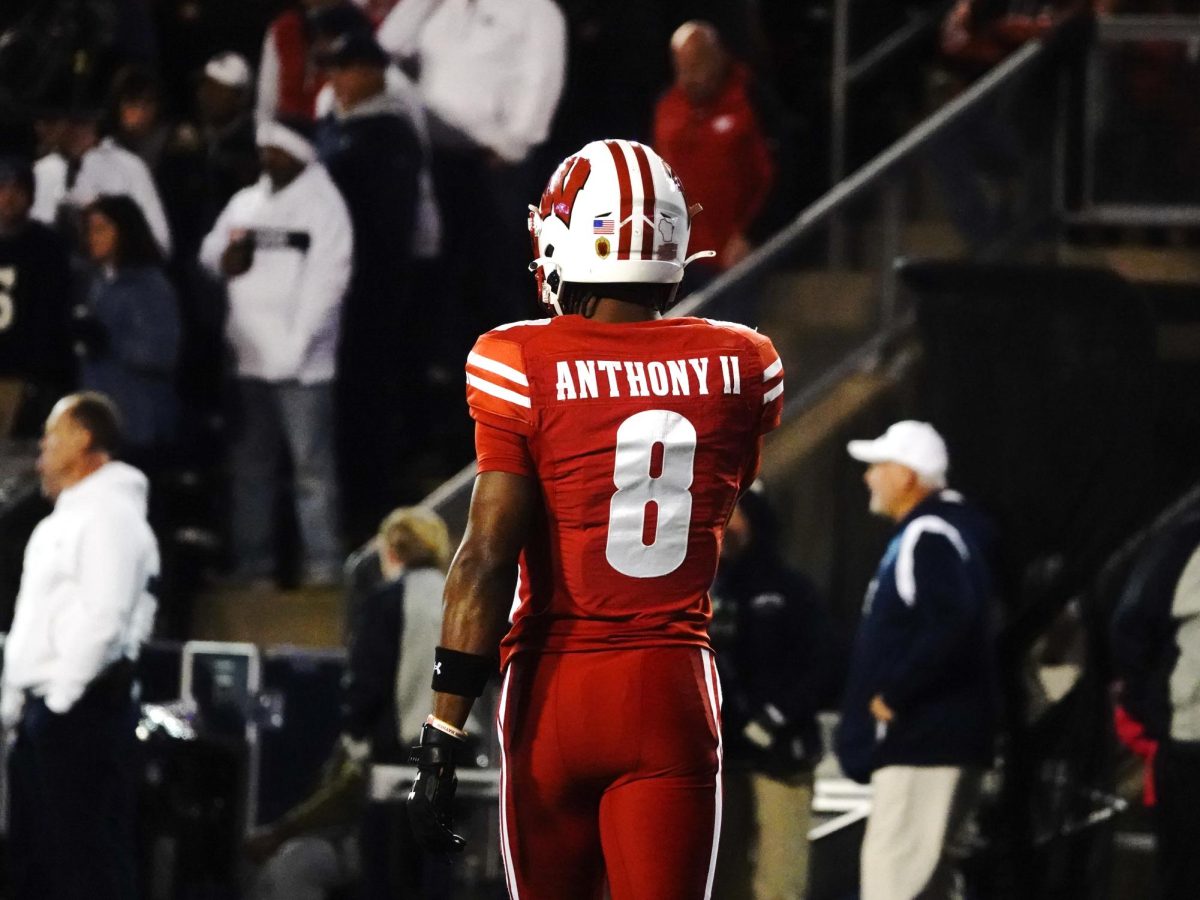[media-credit name=’JEFF SCHORFHEIDE/Herald photo’ align=’alignnone’ width=’648′] [/media-credit]
[/media-credit]
ANN ARBOR, Mich. — The defense may have collapsed, but the offense never showed up. Despite numerous scoring opportunities, especially in the first half, Wisconsin had trouble capitalizing in Saturday’s loss to Michigan.
In the first half, Wisconsin’s offensive difficulties were masked by the play of the defense. But when the Michigan offense came back in the second half, UW was left unable to answer.
“When you fail at the opportunities as many times as we did offensively to put up points, to move the chains,” Badger head coach Bret Bielema said, “just shows we aren’t quite where we need to be from a killer instinct standpoint.”
Though it controlled the clock for the majority of the game, the Badger offense struggled to make plays when it mattered, especially in Michigan territory.
“We gotta be able to convert touchdowns there,” Bielema said. “We gotta figure out ways in the red zone, whether it’s better throws, better reads or better execution in the running game to get those balls across the goal line.”
The Badgers attempted five field goals in the game’s first half — making four of them — but left too many points on the board by not converting offensive drives into touchdowns.
Even kicker Philip Welch, whose four field goals tied a school record, commented on the inability to convert opportunities.
“Definitely would rather those [field goals] had been extra points,” Welch said.
Wisconsin, despite having a 19-point halftime lead, knew that the offense had to improve.
“One of the things we addressed [at halftime],” Bielema said, “was there was a lot of missed opportunities out there in the first half from an offensive standpoint.”
Despite the attention at the break, things didn’t improve in the second half.
After Michigan scored a touchdown to cut the Badgers’ lead to 19-7, Wisconsin faced a third-and-one at the Wolverine 37-yard line. Allan Evridge’s pitch to P.J. Hill on an option play was mishandled, however, and UW was forced to punt after the 12-yard loss.
“Obviously the mishandled pitch that resulted in the lost yardage was a big, big play,” Bielema said.
“We just weren’t executing,” Evridge said of the offense’s play in the second half before adding, “We weren’t executing in the first half either.”
For the game, Wisconsin had four drives that went inside the red zone but didn’t result in a touchdown. Two of the possessions ended in field goals; one was a missed field goal, and the other ended when Evridge lost a fumble.
“I think it came back to bite us this game,” wide receiver David Gilreath said. “We had a lot of field goals and couldn’t execute, couldn’t get in the end zone.”
Tight end Garrett Graham was inactive for the game and Travis Beckum saw limited action, which put more attention on the Badger’s young receiving core. The group struggled, though, and dropped passes plagued the Badgers throughout the day, making it difficult for the team to establish an offensive rhythm.
“There was a lot of [dropped passes] out there. We really hit on it at half time,” Bielema said.
“You just can’t expect to be able to come into a hostile environment in Michigan and play against a good football team in Michigan and have those things count against you.”
Most noticeable of the drops was freshman Nick Toon’s mishandling of what would have been a touchdown pass on the Badgers’ first drive, and a pair of passes that tight end Lance Kendricks couldn’t come up with later in the game.
Though the blame for dropped passes doesn’t fall entirely on the quarterback’s shoulders, Bielema believes Evridge could have played better as well.
“Allan’s got to pick up his level of play and his ability to make the right throws and the right reads,” Bielema said. “Down there in the fourth quarter, there was a couple opportunities for some big hits that we just didn’t go in the right direction with.”
Wisconsin’s offense struggled in its last game as well, a 13-10 victory over Fresno State, making it back-to-back performances in which the team felt it didn’t play to its ability offensively.
“It’s the same song,” Evridge said. “So we’ve got to switch it up and get things going as a whole unit.”
As for what needs to change, Gilreath put it simply.
“Execution, focus, catching the ball, executing blocks,” Gilreath said. “The little things.”












